What Do Chemists Do?
Chemists investigate, develop, and optimize chemical substances and processes for a wide range of applications. They work in various fields including pharmaceuticals, materials science, environmental monitoring, and industrial manufacturing. Their tasks span from creating new molecules to analyzing substances, improving production methods, and supporting regulatory compliance. Chemistry impacts many aspects of daily life and industry.
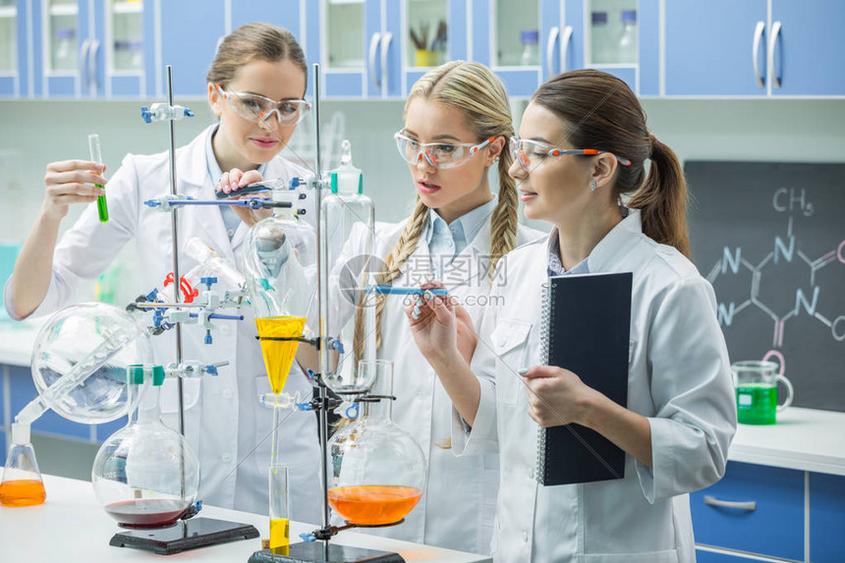
1. Process Development Chemistry
Process development chemists scale up chemical reactions from small lab quantities (grams) to industrial amounts (kilograms). Their role is to refine these processes, making them safer, more cost-effective, and environmentally friendly. A common goal is to eliminate cumbersome steps such as column chromatography.
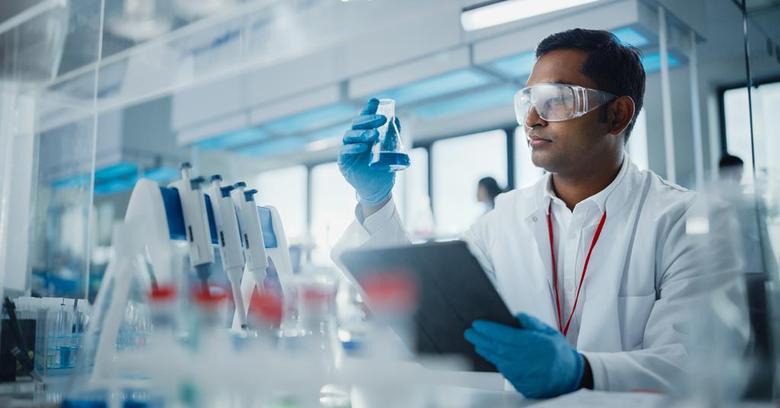
In pharmaceuticals, process development is crucial. Chemists optimize how to manufacture drug intermediates and active ingredients efficiently at scale. This reduces waste and production costs while maintaining high quality.
2. Analytical Chemistry
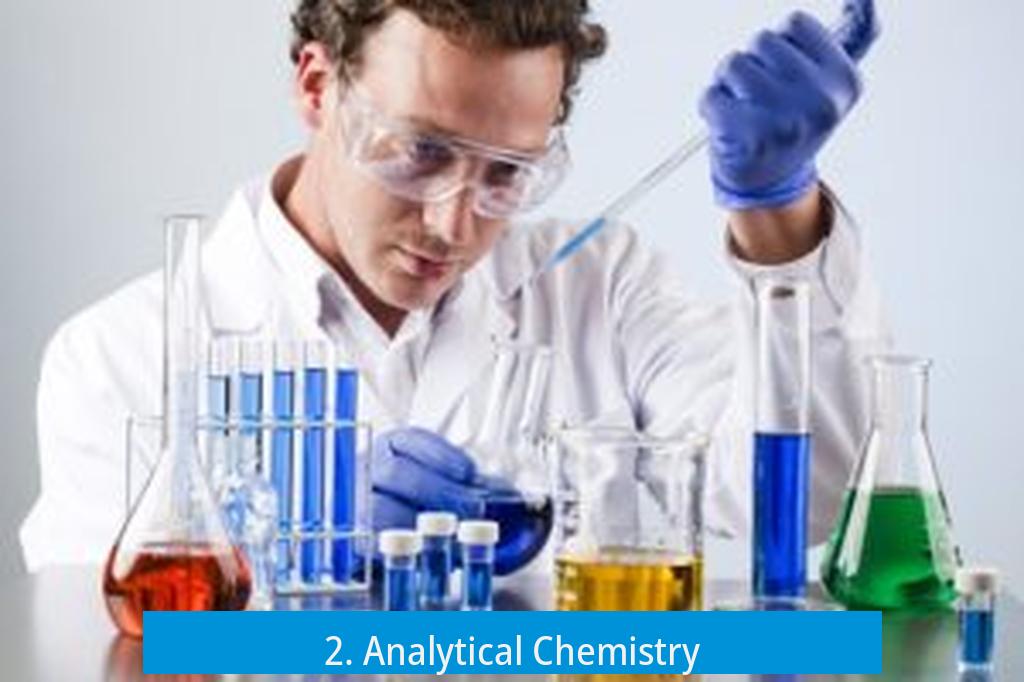
Analytical chemists focus on examining the composition and quality of substances. They measure purity, identify compounds using mass spectrometry, and validate analytical methods to meet strict regulations. Instrument maintenance and method verification are integral tasks.
- Quality control of pharmaceuticals, including active ingredients and finished drugs.
- Environmental monitoring by analyzing metals in air and emissions.
- Forensic analysis to detect substances like drugs.
- Data management through software development in Python or VBA.
Analytical chemists ensure compliance with regulatory standards like those from the FDA and USP. They play a vital role in guaranteeing product safety and effectiveness.
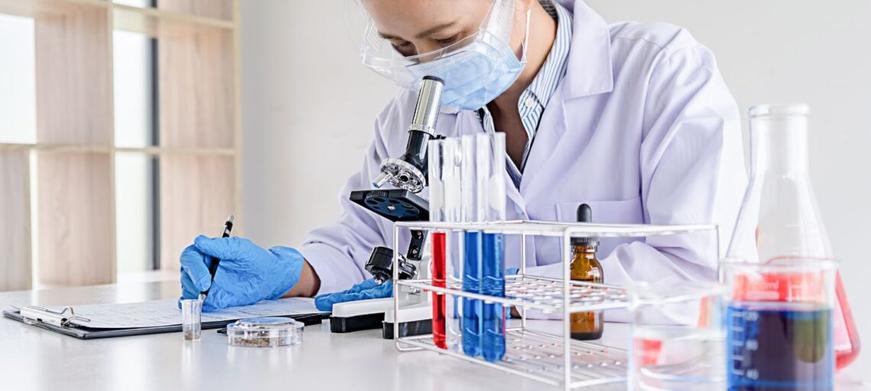
3. Synthetic and Organic Chemistry
Synthetic chemists create new molecules for drug discovery or other applications. Two main research strategies are:
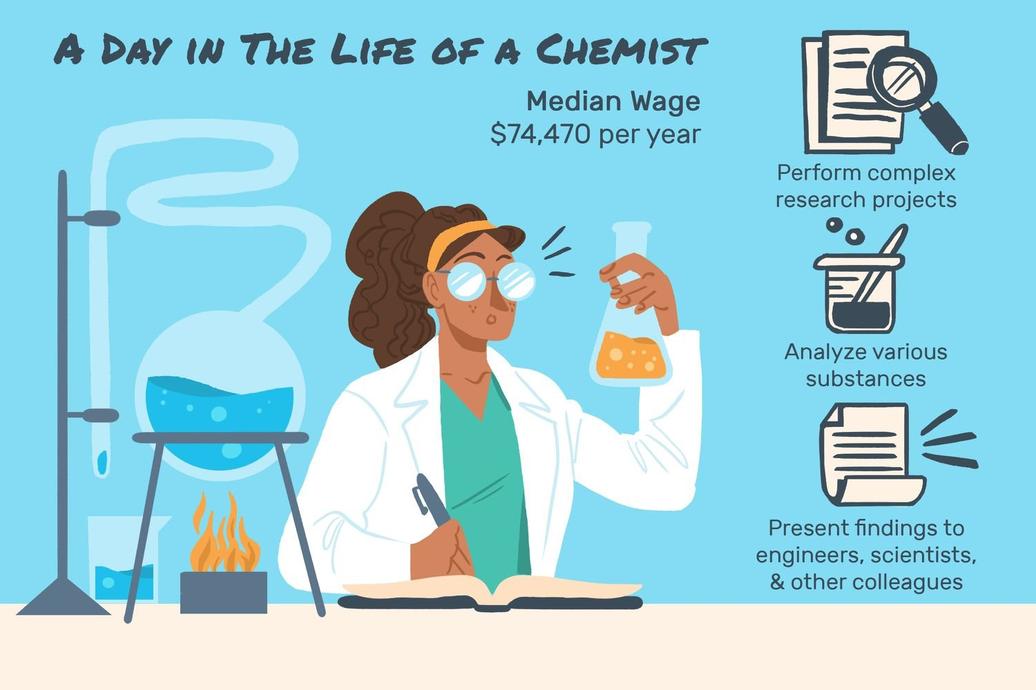
- Total synthesis: Constructing complex molecules found in nature from simple starting materials.
- Methodology development: Inventing new chemical reactions to improve synthesis routes.
These chemists work closely with computational teams to identify potential drug candidates. Synthesized compounds undergo biological testing for medicinal properties. Synthetic chemistry also extends to specialty products such as cleaners.
4. Computational Chemistry
Computational chemists use advanced computer models to understand chemical phenomena. In drug discovery, they predict how molecules interact with biological targets. Computational work supports designing new compounds before synthesis, saving time and resources.
5. Biophysical and Biochemical Chemistry
This branch studies molecular behavior in biological contexts. Techniques include labeling molecules to track their location in cells and characterizing proteins. Genetic engineering modifies bacteria to produce protein variants for enzymatic studies.
Biophysical methods help understand dynamic and disordered proteins, which traditional chemistry cannot analyze easily. This knowledge advances drug mechanisms and biological pathways.
6. Polymer Chemistry
Polymer chemists develop and analyze polymers used in adhesives, coatings, and recyclable materials. They often conduct liquid-phase reactions involving organic or silicon-based compounds. Industrial polymer research targets creating new materials and improving recycling methods.
Analytical chemists support these developments by examining polymer properties and enabling innovation in manufacturing.
7. Materials Chemistry
Materials chemists test and characterize substances like metals, ceramics, and coatings. Work includes:
- Analyzing composition and crystalline structure for 3D metal printing.
- Developing better coatings for products like non-stick pans and solar panels.
- Ensuring materials comply with safety and performance standards.
This field bridges chemistry with engineering to create reliable, cutting-edge materials.
8. Industrial and Chemical Manufacturing
Chemists play a central role in large-scale chemical production. They manufacture pure substances which serve as building blocks in various industries.
Process chemistry overlaps with chemical engineering in optimizing production efficiency and safety. Applications include:
- Pharmaceutical intermediate production.
- Making catalytic converters with precise precious metal content to meet emissions regulations.
9. Product Development and Research & Development (R&D)
Chemists contribute to new product creation across diverse areas such as cosmetics, food, and cleaning agents. They experiment with formulations and ingredients to enhance product performance and safety.
Examples include:
- Formulating lotions, shampoos, detergents, and mouthwashes.
- Flavor chemistry involving natural colorants, fermentation, and protein isolates.
- Optimizing surfactants in agrochemical formulations.
- Developing edible products and exploring innovative drug delivery solvents.
10. Instrument Manufacturing and Support
Chemists are involved in designing, building, and maintaining laboratory instruments like HPLC (High Performance Liquid Chromatography). They may also train field engineers to service these devices and produce technical manuals or parts lists.
Instrument support ensures accurate measurement and data integrity across chemical sectors.
11. Environmental Chemistry
Environmental chemists analyze water, air, and soil samples to detect contaminants and support pollution control. Tasks include:
- Water and wastewater treatment plant analysis.
- Monitoring ambient air for metal pollution.
- Testing hemp or other agricultural products for legal compliance.
- Ensuring environmental regulations are met to protect public health.
12. Teaching and Education
Chemists contribute to education by teaching fundamental concepts such as resonance structures and molecular geometry. They may develop educational tools like games or perform outreach to promote science.
This helps train future chemists and increase public understanding of chemistry.
13. Laboratory Support and Technician Roles
Technicians and assistants support lab operations by preparing samples, cleaning glassware, and aiding research workflows. They balance reagents, mix chemicals, and carefully document procedures.
In industries like oil and gas, lab technicians monitor samples to maintain process quality and safety.
14. Specialized Fields of Chemistry
Specialized chemistries address unique applications:
- Nuclear chemistry monitors reactor coolant chemistry and isotope levels.
- Battery chemistry develops materials and tests battery performance for energy storage advancements.
- Forensic chemistry analyzes controlled substances for legal investigations.
- Explosives chemistry creates compounds for military and industrial use.
15. Research and Development Workflow
R&D in chemistry follows a rigorous cycle:
- Create a hypothesis from findings.
- Design synthesis pathways for creating molecules.
- Produce and verify compounds using techniques like NMR.
- Collaborate with biologists or manufacturing to test and scale reactions.
This cycle supports innovation and efficient translation from concept to commercial product.
16. Broad Impact and Diversity of Chemistry
Chemistry impacts diverse everyday and industrial areas:
- Development of new drugs, plastics, glues, and coatings.
- Household product chemistry including bleach, paints, and food additives.
- Environmental protection through pollution analysis and treatment.
- Essential components in electronics, solar panels, batteries, and textiles.
Nearly every modern convenience relies on chemical expertise somewhere in its creation or lifecycle.
Key Takeaways
- Chemists create, analyze, and optimize chemicals across many sectors.
- Process and analytical chemistry ensure safe, efficient production and quality control.
- Fields like synthetic, polymer, and materials chemistry design new molecules and materials.
- Computational and biophysical chemistry expand understanding of molecular behavior.
- Environmental, forensic, and specialized chemistries support regulation and safety.
- Chemists contribute to education, industrial manufacturing, instrument support, and R&D.
- Chemistry impacts medicine, consumer products, technology, and environmental health.
- The work involves both theoretical and practical skills, requiring collaboration and innovation.
What Do Chemists Do? Unlocking the Endless Roles of Chemistry Wizards
Chemists do a lot more than just mix colorful liquids in lab coats; they transform science into tangible advances that impact almost every part of daily life. Whether you realize it or not, these science pros are behind medicines that save lives, materials in your phone, the cosmetics you use, and even the water you drink. So, what exactly do chemists do? Let’s dive into the fascinating world of chemistry careers and uncover the many hats they wear.
Ever wondered why your shampoo smells so nice or how drugs get from a test tube to your pharmacy shelf? Here’s a detailed tour of the diverse spheres chemists work in, all connected by the central goal of understanding and manipulating the substances around us.
Scaling Up: The Art of Process Development Chemistry
Imagine cooking a recipe for two and then needing to feed a hundred—process development chemists face a similar challenge. They take chemical reactions that happen in tiny lab settings (gram-scale) and scale them up to industrial levels (kilogram-scale). This is crucial in pharmaceuticals, where consistency and safety become big players.
Besides scaling, these chemists optimize these processes. That means making them safer for humans and better for the environment. If they spot a step like column chromatography—which can be costly and wasteful—they strive to remove or improve it. Efficiency isn’t just a buzzword here; it’s a necessity.
Analytical Chemistry: The Detectives of the Lab
If chemists made a superhero team, analytical chemists would be the forensic experts. They analyze samples for purity, content, and identity using advanced instruments. Fun fact: sometimes up to 25% of an analytical chemist’s time is spent maintaining these intricate devices—think microscopes on steroids.
These experts validate instruments, verify methods, and even work in FDA-regulated plants to convert dusty paper logs to slick digital records. One day they’re ensuring chemotherapy drugs remain potent during storage; the next, they’re testing ambient air for metal pollutants or analyzing drugs in forensic labs.
They mix wet chemistry experiments with programming skills, often developing custom software in Python or VBA to manage and interpret complex data. This blend demands a unique mix of dry lab and coding savvy.
Synthetic and Organic Chemistry: The Molecular Architects
These chemists don’t just study molecules; they build new ones. Synthetic chemists design and create compounds tested for medicinal properties, working on drug discovery that might one day cure diseases. Sometimes, they focus on total synthesis—recreating complex natural compounds from scratch—or on methodology development to invent new reactions.
In oncology, chemists help design drugs targeted to fight cancer. Outside the hospital, some make and sell specialty cleaners, demonstrating chemistry’s reach into everyday life. They often collaborate with computational chemists, who use computers to find “druggable” molecules, blending creativity with technology.
Computational Chemistry: The Virtual Chem Lab
Computational chemists harness computers to simulate chemical phenomena. This virtual approach speeds drug discovery and material design by predicting how molecules behave without needing a physical lab experiment. Graduate work often centers on identifying promising molecules, saving time and costs before synthesis.
Biophysical and Biochemical Chemistry: Flashy Molecules and Proteins
These specialists use innovative tricks like making molecules “flash” under lights to track their location on cells. This helps unlock secrets about molecular functions. They characterize proteins, study enzymatic activity, and genetically tweak bacteria to analyze protein variants.
One exciting area is investigating disordered proteins using biophysical techniques—a cutting-edge frontier trying to understand complex biological behavior and disease mechanisms.
Polymer Chemistry: Masters of Materials
Polymers are everywhere—from the plastics in your products to advanced adhesives. Polymer chemists develop new polymers and figure out how to recycle them effectively. Their work involves classic liquid-phase reactions but with a focus on organic or pseudo-organic materials like siloxanes, critical for high-tech industries.
They also support R&D teams by analyzing polymers and improving formulations, making materials stronger, safer, and more sustainable.
Materials Chemistry: Breaking Stuff for a Living
Materials chemists rigorously test components to guarantee quality and safety. At testing firms, breaking parts like metal 3D-printed bits helps ensure they meet specs. Using sophisticated tools, they analyze crystalline structures and detect trace metals at mind-boggling parts per trillion levels.
Developing better coatings and adhesives is part of their game too. Ever wondered who makes non-stick pans or solar panels efficient? Yep, these chemists.
Industrial and Chemical Manufacturing: From Lab to Mass Production
Chemists in industrial manufacturing handle large-scale production of pure chemicals, which act as foundational building blocks for everything—from drugs to plastics. Process chemistry overlaps with chemical engineering here to optimize manufacturing efficiency.
For example, producing pharmaceutical intermediates involves carefully controlled reactions on a massive scale. Meanwhile, specialized analytical chemistry ensures products like catalytic converters meet strict environmental standards.
Product Development and R&D: Creating the Next Big Thing
Chemists in product development play with innovation. They create cosmetics, shampoos, mouthwashes, and even food flavorings. For those curious about the delicious side of chemistry, flavor chemistry blends scientific precision with creative flair to develop new tastes.
They also work in agrochemical formulations, ensuring pesticides and herbicides are safe and effective. Their work involves experimental method development, formulation tweaking, and consumer safety considerations.
Instrument Manufacturing and Support: The Tech Wizards
Chemists also design, build, and maintain the very instruments other chemists rely on. Product support engineers teach field service crews how to fix complex machines like HPLC (High Performance Liquid Chromatography) units.
These chemists take their work international—traveling to train technicians on repairs and updating manuals. They mix hands-on tinkering with technical writing and customer service skills.
Environmental Chemistry: Guardians of Clean Air and Water
Environmental chemists ensure our water and air stay safe. They work in labs at wastewater treatment plants testing pollutants and checking water quality. They blend ground and surface water sources for safe consumption, keeping vigilant watch on contaminants.
From metals analysis for clean air compliance to testing hemp products under strict state laws, these chemists balance scientific rigor with regulatory demands to protect the environment.
Teaching and Education: Spreading the Chemistry Love
Not all chemists stay in labs. Many teach undergraduates complicated concepts like resonance structures or conformational analysis. Some develop educational games that help students grasp tricky topics with ease.
Outreach activities bring chemistry into classrooms and communities—sparking curiosity in future scientists. These educational chemists inspire the next generation to explore the science behind everyday life.
Lab Support and Technician Roles: The Unsung Heroes
Behind every chemistry breakthrough, there are technicians and assistants prepping the scene. They clean glassware, maintain labs, prepare samples, and balance chemicals precisely.
They may perform sample extractions or titrations, ensuring the team has reliable, high-quality materials for experiments. Their work lays the foundation for smooth lab operations, often juggling multiple duties efficiently.
Specialized Chemistry Fields: Niche but Crucial
Some chemists dive into highly specialized fields like nuclear plant chemistry—monitoring isotopes and maintaining reactor coolants. Others work in battery research, developing better energy storage by assembling coin-cell batteries and testing new materials.
Forensic chemists analyze controlled substances, offering crucial insights for legal cases. Meanwhile, military chemists design explosive compounds, displaying chemistry’s role in diverse and sometimes dangerous arenas.
Research and Development Workflow: The Cycle of Discovery
Chemists follow a research cycle that starts with findings inspiring hypotheses. They map synthetic routes, create molecules, verify structures through Nuclear Magnetic Resonance (NMR), and pass molecules to bio labs for activity testing. Close collaboration with manufacturing and other companies ensures turning lab successes into real products.
The Broad Impact: Chemistry’s Fingerprints Everywhere
Chemistry shapes life extensively—new drugs, plastics, adhesives, solar materials, and more. It governs bleach production, food science, and even the paints on your walls. Environmental chemists help companies meet compliance, protecting nature.
In fact, nearly everything around you owes a debt to chemists—from pigments in your clothes to battery materials powering your phone. Their work quietly powers progress in astonishing ways.
So, to sum it up, what do chemists do? They innovate, analyze, teach, manufacture, and safeguard across thousands of specialized areas. Chemistry is a vast playground where the curious engineer processes, the detective analyzes, the artist synthesizes, and the educator inspires—all connected by a quest to make the world a better place.
Isn’t it amazing that the science behind the simple elements creating everything continues to expand human potential? Next time you use your favorite product or take medicine, remember the chemists who made it possible!
What roles do chemists play in pharmaceutical production?
Chemists scale up reactions from small to large amounts. They optimize processes to be safer and greener. They analyze drugs for purity, stability, and potency. Some focus on quality control of raw materials and finished medicines.
How do analytical chemists support other chemistry fields?
They analyze samples for content and identity using instruments. They maintain equipment and validate methods. Analytical chemists also work in environmental testing, forensic analysis, and data review.
What is the role of chemists in drug discovery and synthesis?
Chemists make new molecules to test for medical use. They develop new reactions and synthesize complex compounds. Computational chemists use computers to find drug candidates. Organic chemists work on making and improving drug molecules.
How do polymer chemists contribute to materials science?
They develop new polymers and recycling methods. Some assist in R&D for adhesives and specialty products. They work with liquid phase reactions focused on polymers like siloxanes.
What does a materials chemist do in testing and development?
They test materials by breaking them to ensure safety. They analyze metals and structures using instruments. They develop coatings and adhesives for products like solar panels and cookware.
In what ways do chemists impact consumer product development?
Chemists create lotions, shampoos, and detergents. They develop flavor chemistry in food and beverages. Formulation chemists optimize mixtures for better performance in cosmetics and agrochemicals.


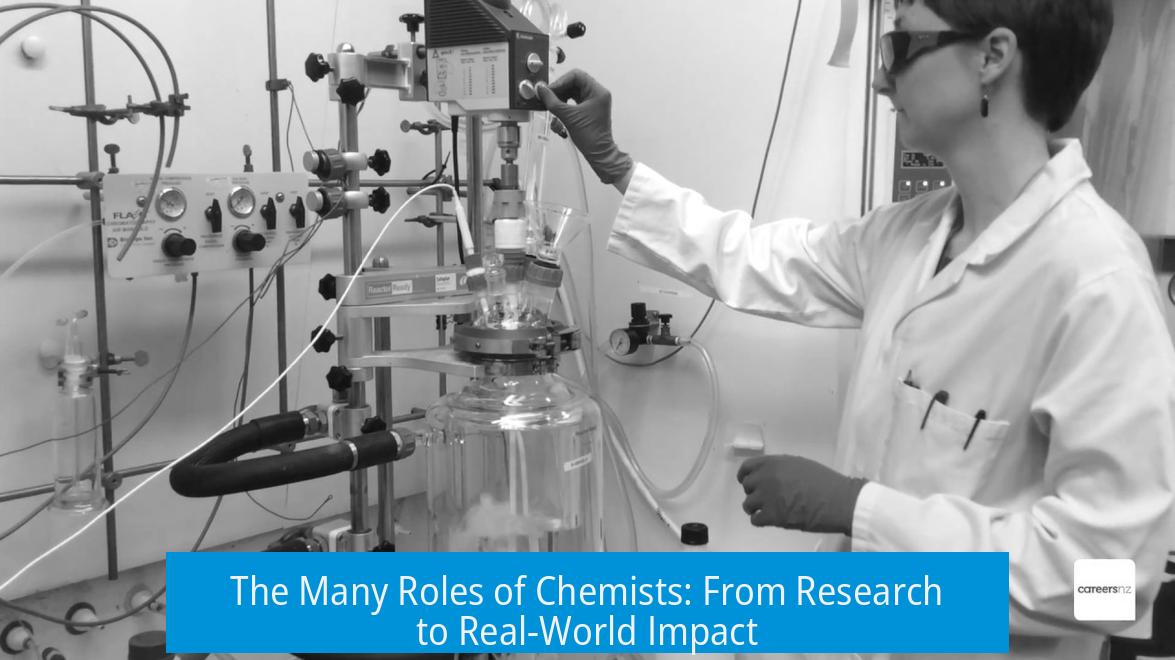
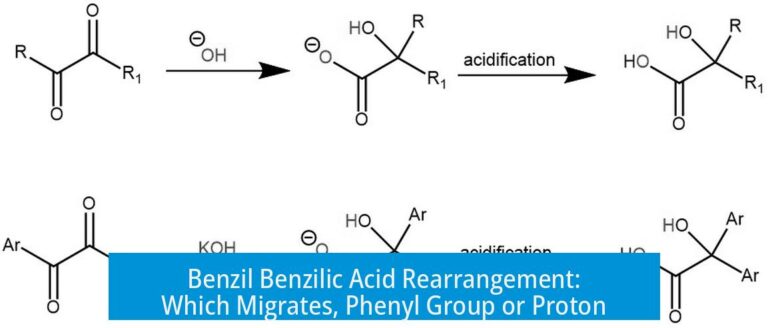

Leave a Comment